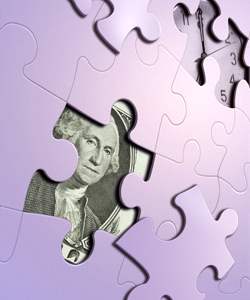 Nov. 16, 2011 – Both houses of the Wisconsin Legislature have passed a bill that changes the interest rate on all civil money judgments from an annual fixed rate of 12 percent to an annual rate of 1 percent plus the prime rate in effect on Jan. 1 and June 30 in a given year.
Nov. 16, 2011 – Both houses of the Wisconsin Legislature have passed a bill that changes the interest rate on all civil money judgments from an annual fixed rate of 12 percent to an annual rate of 1 percent plus the prime rate in effect on Jan. 1 and June 30 in a given year.
The final Republican-backed bill, Senate Substitute Amendment 1 to SS SB 14, passed both the Assembly (59-36) and the Senate (17-16) on party-line votes in early November. The bill now goes to Gov. Scott Walker for his consideration. [Editor's note: Senate Substitute Amendment 1 to SS SB 14 was signed into law by Gov. Walker today, Nov. 16, after publication of this article.]
As originally proposed, the bill would have changed the interest rate only on judgments in civil tort actions, actions to enforce consumer rights under Wisconsin’s Consumer Act, and in consumer protection actions by the Department of Agriculture, Trade and Consumer Protection. The substitute amendment applies the new interest rate formula to all civil judgments.
Madison attorney Timothy Fenner, a partner in Axley Brynelson’s business and litigation practice groups, says the change is a gap-filler where parties have not negotiated a contract rate of interest. “The legislation does not alter contract rates,” he said.
But where no contract rate exists, there may be a disincentive for debtors to pay judgments quickly, Fenner says. “At 12 percent, people were pretty motivated to pay the judgment. Now, you might have to do some chasing given the lower rate of interest.”
Interest rate reduction
Under the bill, the rate of interest on Jan. 1 of a given year (as reported by the Federal Reserve Board) applies to judgments entered on or before June 30, and the rate of interest on July 1 applies to judgments entered after June 30 in a given year.
The same applies if there’s an offer of settlement by a party that is not accepted and the offering party later recovers a judgment that is greater than or equal to the amount specified in the offer of settlement. The current rate of prime plus 1 percent is 4.25 percent.
In the case of settlements, interest accrues from the offer of settlement date to the date on which the judgment is paid. In other cases, interest accrues from the time the judgment is entered to the date on which the judgment is paid.
In computing costs, the same formula (prime rate plus 1 percent) is used to calculate interest from the time of verdict, decision, or report until judgment is entered.
State Bar section and other positions
The State Bar of Wisconsin’s Bankruptcy, Insolvency & Creditors’ Rights Section (BICR) originally opposed the legislation because of the disparate treatment of tort and consumer protection law judgments from other civil judgments, but generally supported a reduced interest rate.
“A flat lower rate, perhaps 6% to 8%, would be sufficient to compensate judgment creditors for the delay in payment, while still providing an incentive for judgment debtors to pay up,” wrote Milwaukee attorney Leonard Leverson, co-chair of the BICR’s Legislation Committee, in a memo to lawmakers prior to passage of the substitute amendment.
The State Bar’s Public Interest Law Section also opposed the original bill as “an attempt to create an inequitable and discriminatory system for judgment and settlement offer interest rates in Wisconsin, dependent on the type of claims involved in the case.”1 However, the substitute amendment applies to all civil cases, eliminating that concern.
Supporters of the bill cited the current 12 percent rate as excessive and unfair. For instance, the American Tort Reform Association argued that a current 12 percent interest rate imposes a punitive burden on businesses, and the Wisconsin Civil Justice Council argued that “a defendant should not be forced to pay an amount far above the current market rate.”2
The Wisconsin Association for Justice (WAJ) opposed the bill, arguing that the current 12 percent rate “discourages unwarranted appeals and encourages prompt payment of legitimate claims.”3 WAJ argued that reduced rates would make it easier for insurance companies to delay payments on claims, adversely impacting consumers who rely on prompt payment.
American Family Insurance Group, the Independent Insurance Agents of Wisconsin and the Wisconsin Insurance Alliance supported the bill.
If Gov. Walker signs the bill as passed, a party who obtains a judgment between the effective date and Dec. 31 of this year will pay 4.25 percent interest until the date of payment, unless the parties have agreed to a contract rate of interest on court judgments.
By Joe Forward, Legal Writer, State Bar of Wisconsin
Endnotes
